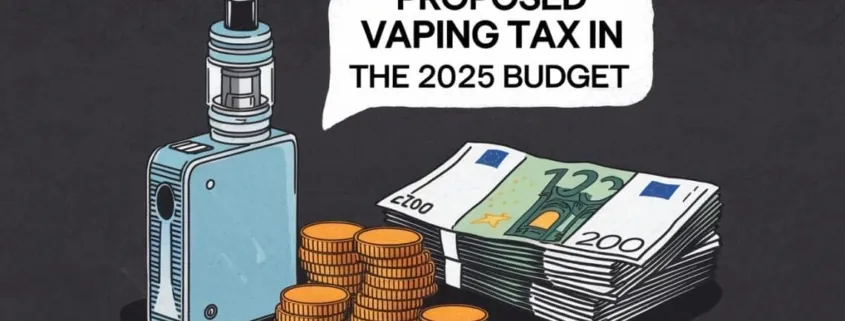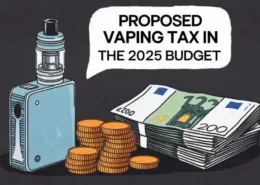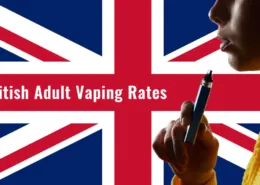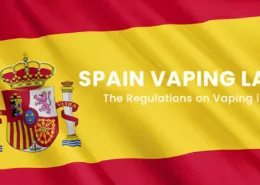Proposed Vaping Tax in France Sparks Controversy, Debate Heats Up
New Amendment Seeks to Impose €0.15/ml Tax on E-Liquids
A new amendment to the 2025 budget has proposed a €0.15/ml tax on e-liquids used in electronic cigarettes, set to take effect in March 2025. The proposal, put forth by deputies from the Liot and EPR groups, has already sparked a fierce debate among vaping advocates and health professionals.
The new tax, which would be indexed to inflation in subsequent years, is estimated to generate between 150 and 200 million euros in additional revenue annually for the state. However, professionals in the vaping industry have strongly opposed the measure, arguing that it could lead to a significant increase in e-liquid prices and drive vapers back to traditional cigarettes.
- Read more: France to Increase Vape E-Liquid Tax by 38%
Vaping Industry Warns of Potential 40% Price Hike, Return to Smoking
The Fivape, a federation representing the vaping industry, warns that the €0.15/ml tax could result in a 40% surge in e-liquid prices. Jean Moiroud, president of the Fivape, expresses concern that this substantial cost increase may push many vapers to resume smoking traditional cigarettes, undermining years of efforts to help smokers overcome their addiction.
The Fivape points to Italy as a cautionary tale, where a similar tax allegedly led 20% of vapers to relapse into tobacco use. Vaping has emerged as a valuable tool for smoking cessation over the past decade, with many doctors and addiction specialists recognizing it as a means to guide patients towards less harmful consumption.
Scientific Evidence Supports Vaping as Effective Smoking Cessation Aid
Numerous independent studies have demonstrated the health benefits of switching from traditional cigarettes to vaping, showing a drastic reduction in toxic substances. A 2015 report commissioned by the British government even estimated that vaping is “95% less harmful” than tobacco, leading UK health authorities to actively promote e-cigarettes as a cessation tool.
The French vaping industry, already under pressure from strict regulations, advertising bans, and stringent product standards, views the proposed tax as another devastating blow. Many specialized vape shops have already closed their doors in recent months, and the introduction of a dedicated tax would further threaten their ability to compete with tobacco products.
As the budget debates continue in Parliament, the proposed vaping tax is expected to face fierce opposition from deputies who view it as a punitive and counterproductive measure that could hinder a proven public health tool. Vaping advocates plan to make their voices heard in the coming weeks, hoping to convince parliamentarians to abandon the tax proposal.
- Malaysia Negeri Sembilan Backs Vape Ban, Awaits Clear Laws - August 5, 2025
- Is It Illegal to Vape or Smoke While Driving in Massachusetts? - August 5, 2025
- Austria Plans to Ban Disposable E-Cigarettes - August 5, 2025








